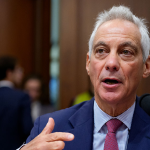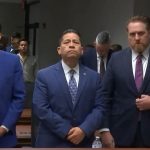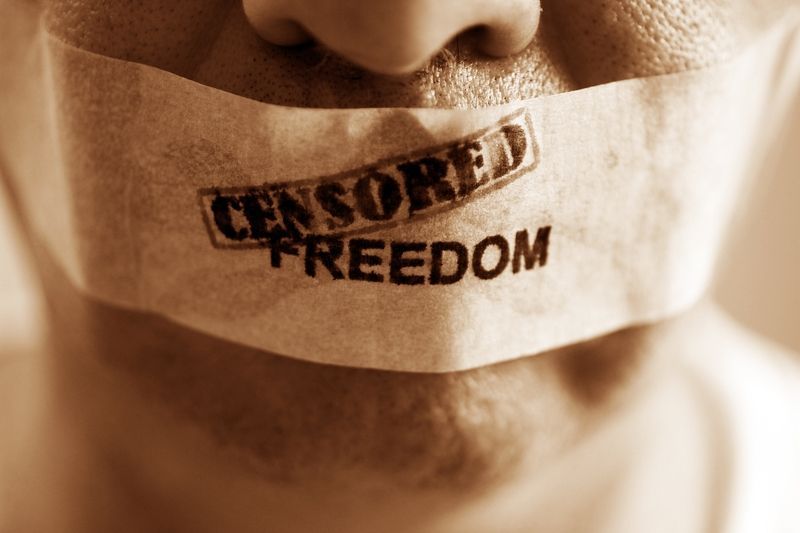“I disapprove of what you say, but I will defend to the death your right to say it.”
Long before the United States Constitution was drafted, society struggled with free speech; its meaning, and the limits to which people had an inalienable right to express their ideas or beliefs. To understand the implications of losing the right to free speech, we must pay close attention to those who have. Consider for instance the few exiled leakers, speakers disinvited from planned engagements, the massacre of Charlie Hebdo cartoonists, and a blogger blocked for ‘pet-shaming.’
Speech-crime, Tweet-crime, virtual signaling, trolling and similar jargon encapsulates the crisis of speaking freely in the 21st century and has forced the democratic world to reexamine its commitment to free speech. However, it is important to note that our nation’s commitment to free speech has been tested over and over again.
It is also important to emphasize the fact that the US has a history of censoring those with unpopular ideas – Thomas Paine, Martin Luther King, Jr., Malcolm X, and a slew of others. However, the clear and volatile attitude today toward speaking our minds and speaking out, recognized as a human right under the First Amendment of the Constitution, is the very picture of history repeating itself.
Some would adamantly disagree, contending that with nearly unlimited access to the Internet, we have even greater freedom of expression, possibly more than at any time in history. For instance, Marvin Ammori, an American innovation lawyer, civil liberties advocate, and scholar contends that “free speech has remained a quintessential American ideal, even as our society has moved from the ink quill to the touch screen.”
So, why then do so many feel that a person’s right to freedom of speech can and should be limited?
The First Amendment and Your Right to Freedom of Expression
The First Amendment of the Constitution of the US guarantees freedom of expression by prohibiting Congress from restricting the press or the rights of individuals to speak freely. Benjamin Cardozo, an Associate Justice of the Supreme Court of the United States wrote that freedom of speech is “the matrix, the indispensable condition of nearly every other form of freedom.”
Today, however, it’s difficult to find anyone that doesn’t agree that the lines are blurred between the freedom to say what we want and what is acceptable to be said. Whether or not a person has the inalienable right of free speech granted to all Americans has come under question; often answered by those with a high-profile platform – the media, the government, social media, Hollywood, or the person holding the biggest microphone.
Freedom of speech is a fundamental right. It reinforces all other human rights, allowing society to progress. The ability to not only speak freely and express our ideas, but also listen to the concerns and opinions of others is essential to bring about change in society. Nearly all speech is capable of giving offense to someone. But, is that reason enough to have it censored or worse, taken away?
The Role of Social Media and the Internet
Is it possible or even conceivable that the First Amendment applies to conventional media—radio, television, and print—yet not to Facebook, Twitter, Instagram and the like? There is a specific provision within the First Amendment that holds traditional media both accountable and protected when they broadcast or publish journalism. The same doesn’t hold true for social media platforms. Granted, they aren’t publishers, at least not in the way that journalism outlets are, although they also often make editorial decisions that are protected by the First Amendment.
For instance, Lauren Southern was blocked from posting on Facebook after saying how Facebook blocked another conservative. A fitness guru was banned from Facebook after posting snide remarks against plus-size women who pose in lingerie to promote body confidence. Facebook repeatedly flip-flopped on whether to allow videos showing beheadings before finally deciding to ban them, then in December blocked a page in Russia that promoted an anti-government protest, but allowed copycat pages to stay up. Twitter and Instagram users have witnessed similar reactions to postings.
Twitter staffers were caught on hidden camera admitting they had been censoring conservatives through “shadow banning.” Back in 2014, 38 journalism groups assailed president Obama and his team for politically-driven censoring of news and media coverage, even though he promised to provide transparency.
College students also increasingly agree that social media stifles free speech. Sixty percent say it’s because people can block anyone whose views they disagree with, and 59% say it’s because they feel people who speak their minds are afraid of being verbally attacked.
It’s not surprising that social media giants like Facebook and Twitter continually work at defining what speech is acceptable and what needs censoring. If a post is deemed “anti-government” for instance, the post and poster may be deleted on the basis of ‘extremism.” However, handing over this kind of power into the hands of a few decision-makers is chilling, and the implications are far-reaching, leading to manipulation, limited choices, unhealthy skepticism, intolerance, and the fear of repercussion from communicating one’s views.
Even so, the majority of Americans do not support giving the government the power to require social media companies to remove objectionable content.
Gagged by Social and Political Correctness
An ongoing, and often heated debate continues about social and political correctness, and most people agree that their right to speak freely has been clearly muzzled. So much so that intolerance has become the new norm. For example, there are reports that in some schools, children are reprimanded if they say certain words like gun, now referred to as the ‘G-word’. Homosexual is out, and same-gender-loving is in. The term, elderly has been replaced with people of an advanced age. Caucasian is now the more politically correct “European-American individual.” A housewife is a domestic engineer, the unemployed are economically inactive, a criminal is a person of interest, and terrorists are insurgents.
Although some think political correctness began and then escalated with the current administration, the term, often abbreviated as PC, was first coined in the late 1980s and called for the need to ‘change language that could be seen as marginalizing, offensive, excluding, or insulting of people discriminated against or considered disadvantaged’. While curbing hate speech is prudent and should be advocated by all civilizations, such restrictions can stifle free speech when taken to the extreme.
Consider the establishment of safe places or idea-free zones on college campuses staffed by ‘thought police’ where disagreement is prohibited. Or the ‘bias-free language guide’ introduced on many college campuses’ that demands protections against offensive words and ideas, at the expense of learning. What about the bitter squabbling and violence that frequently results from anti-religious expression? All too often these efforts focus not on the right to speak but on the possible reaction to speech – a fundamental shift in the treatment of free speech in the West.
A 2018 State of the First Amendment Survey Reveals Americans Consider Fake News More Objectionable Than Hate Speech
There is also, however, a further point to be considered. Who has the last say in what can and cannot be said? Ultimately, many of these decisions fall on the courts, but more often than not, it appears that what is and isn’t appropriate falls to anyone who disagrees with a term, comment, post, or position of another person.
Where Do We Go From Here?
Good intentions or not, there are a lot of people trying to over-regulate free speech. Our founding fathers understood its importance. So much so that they gave it preference in the First Amendment. Everyone has the right to freedom of expression; to hold opinions without interference. Communication is a fundamental human need and social practice, and is central to sharing information and imparting of views and ideas. No one should be excluded from its benefits.
Unfortunately, as a nation and a people, we seem to have fallen out of love with free speech, which in many ways has increasingly become more of a nuisance than a right. Whether speaking freely is deemed hateful or discriminatory or merely false, in the final analysis, society is denying our inalienable right in the name of tolerance and enforcing a restriction on speech through categorical censorship. Rather than defending our right to free speech, we are instead taking refuge in forced silence.
That said, if you find objection to this article, or want to voice your option about a flaw in my logic, it is free speech that gives you the right to do so.
George Washington tactfully penned, “If the freedom of speech is taken away then dumb and silent we may be led, like sheep to the slaughter.”
























